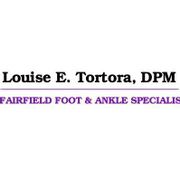
Tendons are the strong cords of tissue that connect our muscles to our bones. Tendinitis (also called tendonitis) is a condition where one or more tendons become inflamed. It can occur in multiple parts of the body and is a common source of shoulder, elbow, or heel pain. This guide will share some frequently asked questions about tendinitis.
What You Should Know About Tendinitis
What causes tendinitis?

The most common cause of tendinitis is the overuse of a tendon. This can happen during the course of daily activities, work, or sports. You are most likely to develop this condition if you perform the same movement over and over. People who work in an assembly line or play sports that require repetitive movements like golf or tennis are at the highest risk of developing it.
The risk of tendinitis increases if the movement is performed incorrectly, like an athlete playing with poor form. This condition can also be caused by a direct injury to the tendon or by inflammatory disorders like arthritis.
What are the symptoms?
Tendinitis will often cause pain in the affected area or joint. Inflammation may be present as well. The area might have a dull aching pain, or it might feel tender to the touch.
There is usually a stronger sensation of discomfort when the affected area is moved, such as elbow, knee, or heel pain. In some cases, the joint may feel stiff or weak.
How is it treated?
Treatment options will depend on the location and severity of the affected area. Rest is usually the first piece of advice recommended by a doctor or physical therapist. You may be asked to avoid activities that would aggravate the area.
If possible, the tendon can be elevated to help reduce inflammation. Applying heat or ice can also reduce swelling. Over-the-counter pain relievers and anti-inflammatory drugs can make the pain more manageable and help reduce swelling as well.
Can tendinitis be prevented?
The best way to prevent tendinitis is to avoid repetitive movements. If you play sports or hold a job that requires these types of movements, take frequent breaks while you perform these activities to avoid straining the tendon.
Warming up before exercise and stretching afterward can keep the area loose and help you to avoid strain.
If you have knee, elbow, or heel pain due to tendinitis, visit Louise E. Tortora, DPM in Fairfield, CT. This foot and ankle specialist treats a wide variety of conditions that may be causing pain or swelling in your feet or ankles. Podiatrist Dr. Tortora treats every patient with kindness, respect, and superior knowledge of the industry. Visit their website to learn more about heel pain or call (203) 254-0093 to schedule an appointment.
About the Business
Have a question? Ask the experts!
Send your question

